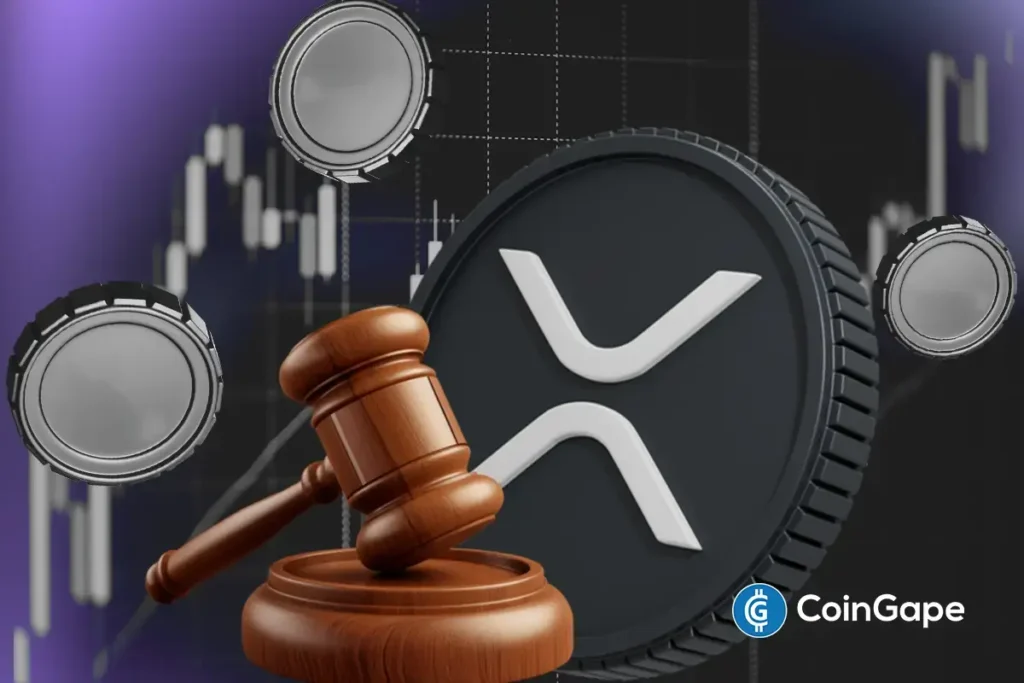XRP Lawsuit Update: SEC Challenges Emergency Request
The ongoing legal battle between Ripple and the U.S. Securities and Exchange Commission (SEC) continues to capture attention, particularly with recent developments surrounding an emergency request filed by Justin W. Keener. Keener’s petition, submitted on April 3, 2025, aimed to present what he described as “decisive evidence” in support of Ripple and the broader interests of the American public. However, the SEC has formally opposed this request, arguing that the matter lacks jurisdiction in light of the case’s progression to the Second Circuit Court of Appeals.
SEC’s Justification for Jurisdictional Authority
In its opposition filing, the SEC urged Judge Analisa Torres to dismiss Keener’s emergency request. The Commission emphasized that once a timely appeal is initiated, the District Court no longer retains jurisdiction over the issues contained within that appeal. Citing previous rulings, specifically referring to New York v. Department of Homeland Security, the SEC contended that allowing Keener’s request would overstep the legal boundaries established by the appellate process. This assertion underscores the SEC’s commitment to maintaining procedural integrity during what has been a complex legal tussle with Ripple.
Challenges to Keener’s Request for Legal Intervention
In addition to questioning the jurisdictional limits, the SEC pointed out procedural lapses in Keener’s appeal. They noted that Keener failed to file a proper motion to intervene in the case, which is typically required for third parties wishing to contribute evidence or arguments in ongoing litigation. By not adhering to this legal prerequisite, the SEC argued that the court is not obligated to consider his request. This stance reflects a broader judicial principle wherein courts typically do not entertain motions from parties who have not established their legal standing within a case.
Ripple’s Autonomous Defense Strategy
The SEC’s response further maintained that Ripple possesses the capability to incorporate or dismiss any evidence that Keener might offer. The Commission highlighted that Ripple’s legal team is well-equipped to determine the relevance of documents in the context of the lawsuit, implying that the company does not need external assistance to mount a robust defense. This assertion also follows a precedent where the court previously denied attempts by unrelated third parties to introduce additional evidence, reinforcing the SEC’s position that Ripple can adequately defend its interests without outside interventions.
Uncertainty Surrounding the Nature of Keener’s Evidence
While Keener claimed to hold crucial evidence to assist Ripple, specific details about the nature of this evidence remain ambiguous and have left many in the Ripple community pondering its significance. Although some speculate that it could involve aspects akin to investment contracts, Keener has refrained from confirming or elaborating on this point. His claims raise questions, particularly as the Ripple case appears to be reaching a significant conclusion, and the timing of his intervention seems curious to observers.
Ripple’s Future Post-Lawsuit and SEC Developments
The SEC’s recent opposition arises amid encouraging developments in the XRP lawsuit. Ripple’s CEO, Brad Garlinghouse, has indicated that the legal confrontation with the SEC is nearing its resolution, fueled by the Commission’s announcement of dropping its appeal. This moment spells potential optimism not only for Ripple but for the broader cryptocurrency ecosystem, especially with approximately 20 XRP exchange-traded funds (ETFs) currently awaiting approval from SEC channels. Nonetheless, XRP’s market response to the lawsuit’s unfolding has been somewhat muted, leaving many to speculate on the long-term market impact of these legal proceedings.
Ripple’s Strategic Moves Amid Legal Uncertainties
As Ripple awaits the finalization of the lawsuit, the company is simultaneously making bold moves in the market. Recently, Ripple announced a noteworthy $1.25 billion acquisition deal for Hidden Road, a global multi-asset prime broker. This development positions Ripple to be a pioneering force in integrating traditional finance with cryptocurrency, an innovative step that could redefine its operational landscape following the lawsuit. Moving forward, it will be crucial to observe how these dual narratives—the legal complexities surrounding the XRP lawsuit and Ripple’s new acquisitions—intertwine to shape the company’s trajectory in the fast-evolving crypto market.
In conclusion, the SEC’s ongoing resistance to third-party interventions and claims from individuals like Keener highlights the complexities of regulatory frameworks in cryptocurrency matters. As Ripple prepares for the expected closure of its legal case, the potential implications for the broader financial ecosystem remain to be seen, especially in light of their significant strategic acquisitions and market positioning. As the situation develops, both Ripple and the SEC are navigating uncharted waters that will inevitably influence the future landscape of cryptocurrency regulation and adoption in the United States.


